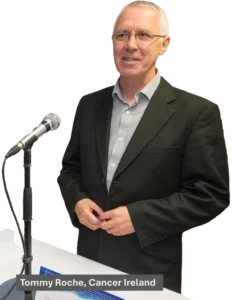Diagnosed with cancer?
BOOST YOUR RECOVERY
Add Complementary therapies to your conventional treatment for much better, lasting results.
✓ Reduce treatment side-effects
✓ Improve treatment effectiveness
✓ Improve your quality of life
✓ Reduce your risk of a recurrence
✓ Boost your long-term survival

Conventional treatment alone isn’t enough.
Despite all the hype about advances in cancer treatment, research has shown that for most cancer patients, standard treatment alone does not result in long-term survival. All too often patients get short-term remission followed by a deadly recurrence.
The good news is that you can heal from almost any cancer – including stage 4. Many others have done it – even when their doctors said there was no more that could be done.


Complementary therapies improves survival.
Complementary cancer therapies comprise a wide range of lifestyle practices, therapies and supplements that you can add to your standard treatment. These have been proven to improve your physical health, improve treatment outcomes, reduce treatment side-effects, and increase your personal chances of achieving long-term cancer survival.
Emotional and spiritual healing improves survival.
Our thoughts and emotions have the power to influence our health just as much as our biological makeup. Perhaps even more so. As more and more studies show the role of emotional trauma in the development of cancer, it becomes clear that emotional healing and spiritual healing in cancer is critical for recovery.


Meet Anita Moorjani
In 2006, after a four-year battle with cancer, Anita Moorjani fell into a coma and was given hours to live. Five weeks later she left the hospital with no evidence of cancer.
In an interview on the Breakdown podcast, Anita said:
“ When you get a cancer diagnosis, the diagnosis that the doctor gives you is based on your cells and their movement and their progression provided you don’t do anything at all. It’s based on the current trajectory of those cells, based on where you are right now, provided you do nothing to change, but you can change a lot of your current circumstances. And so I have them go inward and check where they have stresses in their life…continue at anitamoorjani.com
Where does the info on this site come from?
The information on this site has already been published online or in print form by others. This site simply brings it all together so that cancer patients don’t have to search numerous sites to find the information they need. Sources include:
- Cancer doctors and researchers
- Medical journals, books and magazines
- Recovered patients
- Clinical studies
- Integrative cancer clinics
- Government websites including the US National Cancer Institute
- PubMed – a US National Library of Medicine database of clinical studies .
